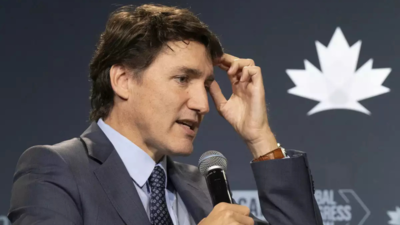
NEW DELHI: In a surprising admission, Canadian Prime Minister Justin Trudeau revealed that his government had no concrete evidence when it initially accused India of being involved in the killing of Hardeep Singh Nijjar, a prominent Khalistani extremist. The revelation comes at a time of escalating tensions between India and Canada, raising questions about the diplomatic storm that followed these unsubstantiated allegations.
Trudeau, who was testifying before the foreign interference inquiry, acknowledged that when his government implicated New Delhi in Nijjar’s assassination last year, they were acting on weak intelligence rather than definitive proof. “They [India] asked us how much do you know? Give us the evidence you have on this and our response was well, its within your security agencies, you should be looking into how much they know you should be engaging.”
“They [India] asked to show the evidence, and at that point, it was primmarily intelligence, not hard evidentiary proof,” Trudeau said, underscoring the fragile basis of the initial accusations.
The timing of Trudeau’s confession coincides with an explosive claim by Gurpatwant Singh Pannun, a designated Khalistani terrorist and leader of the banned group Sikhs for Justice (SFJ). Pannun revealed that he had been in contact with Trudeau’s office for the past three years, regularly sharing information—further complicating the narrative of Canadian-Indian relations.
Also read: Khalistani terrorist Pannun says he shared information against India with Trudeau’s office
This diplomatic row erupted when Canada labeled India’s High Commissioner and other diplomats as “persons of interest” in the investigation of Nijjar’s death. India swiftly denounced the allegations, dismissing them as “preposterous” and part of Trudeau’s political maneuvering.
The fallout saw India recall its High Commissioner from Canada, followed by Ottawa expelling six Indian diplomats. In retaliation, New Delhi ordered six Canadian diplomats to leave before October 20, signaling a deepening divide between the two nations.





